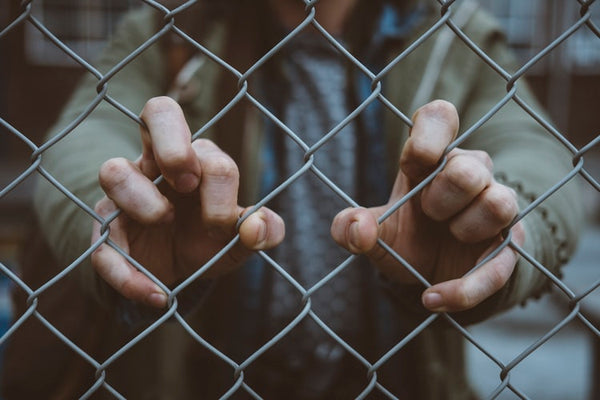Updates From The Global Pandemic

COVID-19.
Coronavirus.
These two words have taken over the entire globe. The disease is halting economies, recreational activities, education systems and so much more because of its effects. As many individuals are focused on their own local economies and daily living activities in the midst of this pandemic, there are so many other people in the world whose lives are being, again, turned upside down.
As the nearly 26 million refugees in the world have been already struggling to provide food, water and shelter for themselves and their families, they now have another obstacle in front of them in this disease. This new pandemic has not only affected their health risks and economic status, but it has impacted their hope of beginning a new life in a new country or city.

The COVID-19 pandemic has become such a concern across the globe that the International Organization for Migration along with the UN refugee agency have announced a temporary suspension of all travel surrounding refugee resettlement. Though temporary, there are millions of refugees who have to wait even longer to escape their dangerous living situations because of a separate, but still dangerous, global health threat.
The situation of living in lockdown, in addition to living in a refugee camp, is proving to be a challenging one to say the least. There are many families in refugee camps who previously relied on the work of one or more of their family members, but they have now lost their source of income because of the recent lockdown order from the camp. For some families living in the Za’atari and Azraq refugee camps in Jordan, they have turned to selling non-essential home items in order to buy more immediate necessities.
Refugees' COVID-19 Hardships
Along with this example of how the COVID-19/coronavirus pandemic is affecting refugees in Syrian refugee camps, there are many more stories of how daily struggles have intensified. For Libyan refugees, the current humanitarian crisis is only continuing to escalate because of COVID-19. The current civil crisis has displaced 150,000 people since April 2019 and caused the housing, medical and financial environments to suffer tremendously. Consequently, there are now large groups of people living together which only increases the risk of COVID-19 transferring from person to person. With a current tally of almost 50 cases reported and numbers continuing to rise, the weakened health care system in Libya is lacking the ability to adequately serve those affected.

As civil conflict in Venezuela began in 2014, many refugees fled to neighboring Columbia for a safe place to live along with reliable working conditions. However, plans have changed due to the current coronavirus pandemic. There are now a large number of Venezuelan refugees who are making the journey back to their home in Venezuela to avoid many of the costs in Colombia. As COVID-19 has affected every other country in the world, so it has in Columbia also. Jobs were cut, rent and other expenses remained, and this group of Venezuelan refugees made the difficult decision to leave for their home in Venezuela which was more than 600 miles away.
Another trying situation is facing the refugees located on the Greek refugee camps of Lesbos Chios, Samos, Kos & Leros. Overpopulated by 30,000 people, these camps provide extremely limited access to basic necessities such as water and sanitation services. With these two services being necessary to fight against the COVID-19 crisis, the refugees here face incredible risk of contracting the dangerous disease.
Stories Of Hope During Coronavirus Pandemic
Though the global refugee population is currently experiencing incredible risks and hardships during the coronavirus pandemic, there have been positive stories from many different countries of refugees making a difference in their local communities.
Both Yasin and Mohammed were trained medical professionals prior to fleeing their home countries of Somalia and Libya. These two individuals are now in France and volunteering their services to whatever organization or hospital needs them. Yasin has been translating important hospital & charity documents while Mohammed has registered himself on the emergency support staff roster for French hospitals.
In addition to these two health care workers in France, Moheyman works hard during his 12-hour night shifts administering COVID-19 tests and tending to its patients. Moheyman is an Iraqi refugee, but works at a local hospital in Iran where the disease has severely affected the country. Though the health threats are extreme, Moheyman is proud to serve the community.
UNHCR - "Refugee nurse on the front line against coronavirus in Iran" - April 2020
Another story out of Ecuador tells of a Venezuelan refugee who is teaching at-risk Ecuadorians about the importance of hygiene and social distancing. Samuel initially fled his home country of Venezuela due to its civil instability and shortages of essential items in 2018. After serving hearing about the coronavirus and the impact it can have to especially older populations, he began going from house to house teaching the community about the disease and the health practices they should begin in order to not become sick.
How You Can Help
The team at Epimonia loves hearing stories about how refugees are serving their local communities and bringing much needed support to areas in need. Inspired by the current events of this world, we have started a campaign called “Humanity-19” which sends 100% of our profits to three different organizations: USA For UNHCR, Border Kindness and Penny Appeal USA. To support these organizations in their fight against COVID-19, purchase one of our bracelets in our store!


